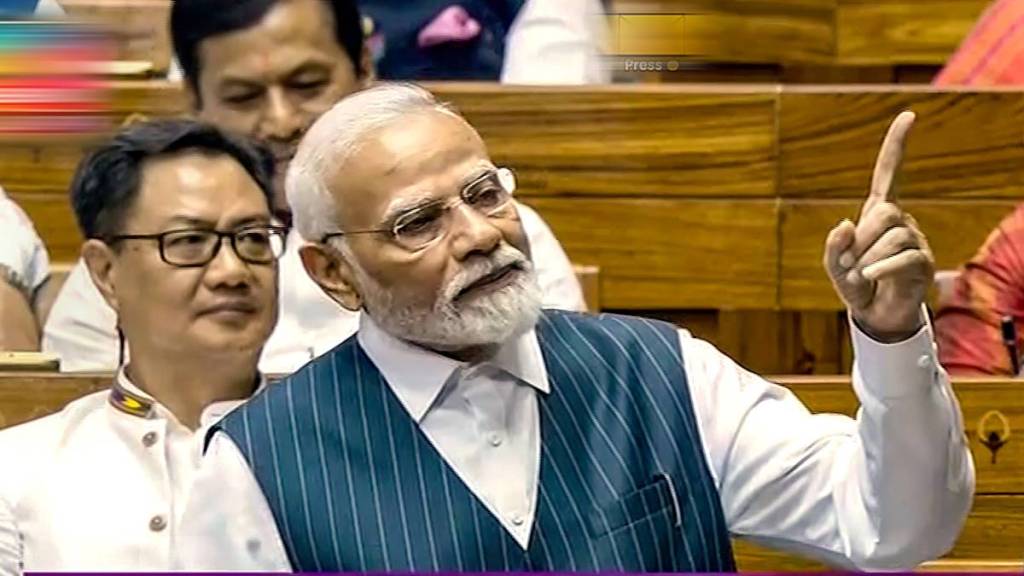The Bharatiya Janata Party’s bold move to bring women’s reservation to Parliament has the potential to cement its position among women in the Lok Sabha elections 2024. On the opening day of the new Parliament House, the Narendra Modi government introduced the Constitution (One Hundred and Twenty-eighth Amendment) Bill to provide for 33 per cent reservation to women in the Lok Sabha and state assemblies.
“Perhaps, God chose me for this job,” Prime Minister Narendra Modi said as he addressed the Parliament after announcing that his government was bringing the Nari Shakti Vandan Bill in Lok Sabha. While several governments before him tried to pass the Bill, the move by the Modi government ahead of the Lok Sabha elections next year could prove to be a political game-changer.
Also Read: Women’s Reservation Bill back in focus, but rollout unlikely before Lok Sabha elections 2024
A core agenda for the BJP, the promise to provide 33 per cent reservation for women in Parliament and state assemblies had featured in its election manifestos in 2014 and 2019 as well. Back-of-the-envelope calculations suggest that the introduction and subsequent passage of the women’s reservation Bill could impact over 160 Lok Sabha seats in the coming elections where women voters have outperformed their male counterparts in the previous elections.
Why women votes matter to the BJP
As of 2019, India had approximately 91 crore voters comprising 44 crore women. Among them, women voters outperformed their male counterparts in the previous Lok Sabha elections in terms of turnout. As per Election Commission data, 67.18 per cent of eligible women voters participated in the polls as compared to 67.02 per cent of men.
Also Read: Parliament Special Session Day 2 – As it happened
States like Tamil Nadu, Arunachal Pradesh, Uttarakhand, and Goa, were among 12 states, accounting for 200 Lok Sabha seats, where women registered higher voter turnout than men. In all these states, barring Tamil Nadu (39) and Kerala (20), the BJP secured emphatic wins in the 2019 general elections that saw the party bag 303 of the 543 Lok Sabha seats.
Much of this emphatic victory was attributed to the crucial role played by women voters in the elections. As per CSDS data, the BJP polled 37 per cent of the total votes in 2019, with women accounting for over 36 per cent of those votes.
In contrast, the Congress, which could only win 52 seats, garnered a much lower 20 per cent support from women voters. On the other hand, the remaining 44 per cent of women’s votes primarily went to regional parties like the Trinamool Congress, Biju Janata Dal, Bahujan Samaj Party, and the Janata Dal (United).
According to the India Today-Axis My India post-poll study after the 2019 elections, 46 per cent of women voted for the BJP and its allies, 27 per cent for the Congress-led UPA and another 27 per cent for other parties. On the contrary, 44 per cent men had voted for the BJP.
Interestingly, the study showed that 50 per cent of women who mentioned their occupation as ‘housewives’ voted for the BJP, while 23 per cent voted for the Congress.
Women voters: A growing support base
Over the years, the BJP under PM Modi has steadily built a strong support base among women through its policies centred around them. The BJP’s push for women’s quota sits well with its stated stand towards ensuring gender justice, something that also saw it bring an ordinance to ban triple talaq ahead of the 2019 elections.
Initiatives aimed at women including Beti Bachao Beti Padhao, Ujjwala Yojana for 9.6 crore women, opening of 27 crore Jan Dhan accounts, 27 crore MUDRA loans to women entrepreneurs, and Mission Poshan, among others have also had a positive impact.
Also Read: Explained: What is the women’s reservation Bill introduced in Parliament?
The Bharatiya Janata Party swept the seats in states where more women voted for the BJP than men. In Gujarat, for instance, the BJP won all 26 seats. Similarly, the party won 16 seats in Bihar, 10 in Odisha, and 9 in Assam. In Maharashtra too, the BJP secured victories on 23 seats, while its former alliance partner, the Shiv Sena, won 18 seats.
The strong performance of the BJP among women voters in the 2019 elections was an improvement from its tally in the 2014 elections, implying that the support for the party among women voters has only grown.
In 2014 too, the BJP received substantial support from women voters. According to CSDS, 29 per cent of women voters polled in favour of BJP in 2014, contributing to the party’s overall vote share of 31 per cent. The figures showed a marked improvement from 2009 when only 18 per cent of women supported the BJP.


